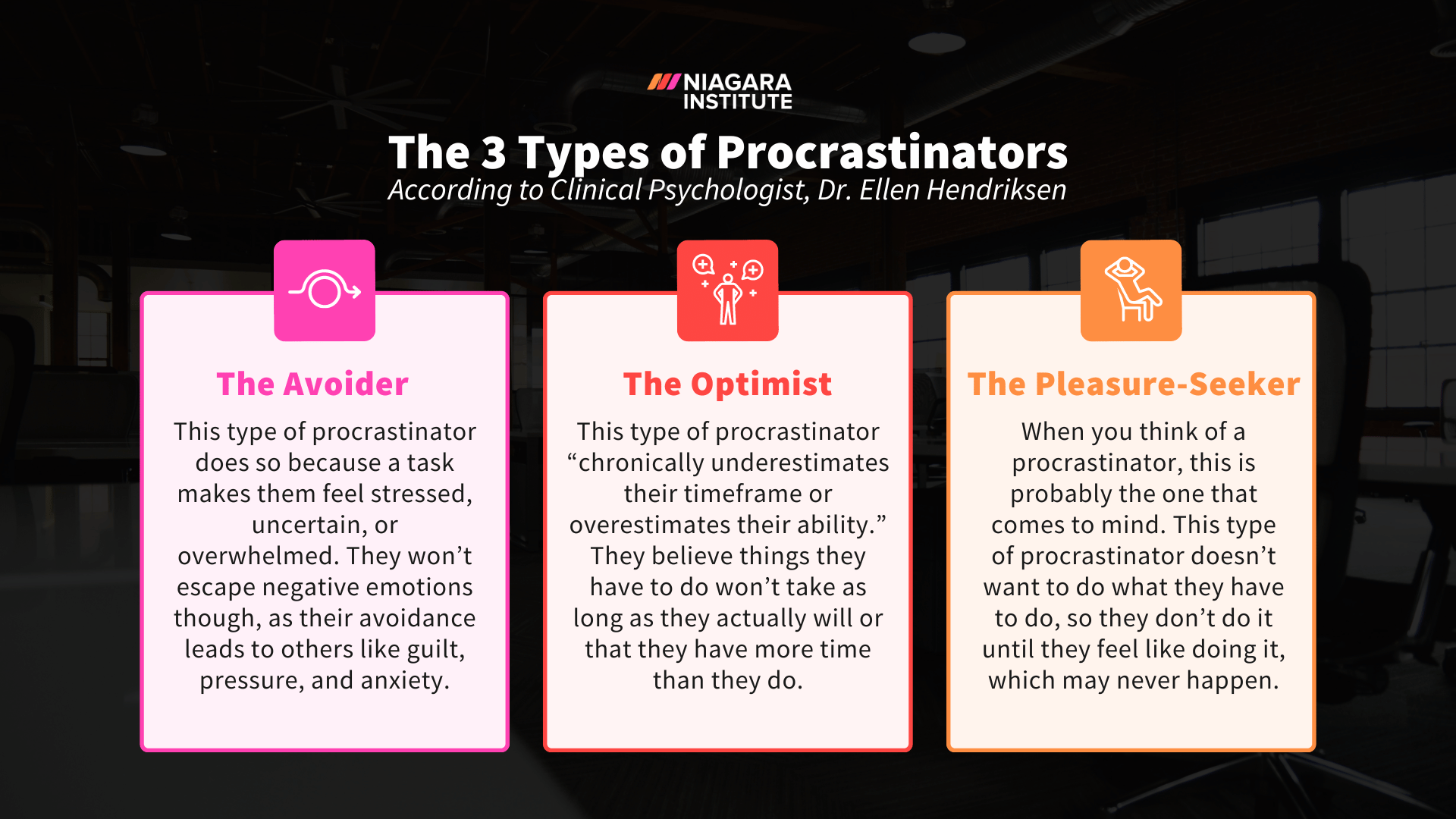5 min read
13 Ways to Help Employees with Self-Motivation at Work
Have you noticed the get-up and go has got up and went for one or many of your employees? If so, you’re not alone. Many leaders across all industries...

Leading a procrastinator can be challenging, especially if you aren’t one yourself. However, it’s a challenge you will likely have to face sooner or later, given that 20-25% of adults worldwide are chronic procrastinators.
To help you if you find yourself with a procrastinator on your team, this article includes information on what it means to be a procrastinator, the different types, and the things you should and should not do when leading a procrastinator.
According to a professor of psychology at the University of Sheffield, Fuschia Sirois, a procrastinator is someone who “voluntarily and unnecessarily delays an important task, despite knowing they’ll be worse off for doing so.”
Commonly procrastinators do this because “difficult, unpleasant, boring, and stressful” tasks put them in a negative mood they cannot manage or overcome, says the professor. Meanwhile, other psychologists have found that the following may also cause an employee to procrastinate:
Notice how laziness is not one of the causes of procrastination listed above? As David Cain explained in his article, Procrastination Is Not Laziness, “Procrastination is not typically a function of laziness, apathy or work ethic as it is often regarded to be. It’s a neurotic self-defense behavior that develops to protect a person’s sense of self-worth.” While that article is now over a decade old, the idea remains true to this day as recent studies have drawn similar conclusions on the topic.
The first step in leading a procrastinator is gaining a deeper understanding of the individual and their tendency to procrastinate so that you can adapt your approach accordingly. One way to achieve that understanding is to identify what type of procrastinator your employee is. Here is an overview of the three common types of procrastinators as discussed by Dr. Ellen Hendriksen on the podcast, The Savvy Psychologist:

Having a procrastinator on your team doesn’t have to be a bad thing. In fact, they could very well become star performers or high potentials should they have sufficient personal responsibility, development opportunities, and leadership. To give you an idea of the kind of things they need from you, here is a list of five do’s and don’ts to account for when leading a procrastinator.
One of the best things you can do for your working relationship with a procrastinator is to set expectations with them. Expectations ensure all of your employees, not just procrastinators, know what is or is not acceptable in your eyes and help keep unnecessary tension or resentment from building over time. Ideally, you would set expectations from the get-go but if you haven’t and your employee's procrastination is becoming a problem, then make a point to do so ASAP.
If you have to delegate an important task, you might be tempted to give it to someone who is not a procrastinator. While this is understandable, over time, it can impede your procrastinator's development and overwork others on your team. Instead, when delegating to a procrastinator, ensure that every task you delegate is time-bound. If you need to, build in buffer time by setting the deadline earlier than you originally planned. You can also set specific times or checkpoints at which you want your employee to update you on their progress so that you know whether they are on track.
Your employees who procrastinate need a strong sense of accountability, which you can create by setting them up with an accountability partner. As one New York Times article on the topic explains, “Some people are very accountable to themselves, but not most people. An accountability partner is there to support you, to problem-solve, and to celebrate even small victories. Judgment is the quickest way to destroy all that. People are so hard on themselves. [Accountability partners] don’t need to be hard on them.”
While procrastination is something an individual needs to take personal responsibility for improving, that doesn’t mean they shouldn’t be able to turn to you for coaching, support, and feedback when they’re struggling. After all, when employees receive these things from their leaders in a timely and constructive manner, it can significantly accelerate their progress.
It is well-known that celebrating wins and frequent recognition can significantly impact employees. For example, Gallup and Workhuman found, "When managers take the time to acknowledge accomplishments, say thank you, and give praise, employees are 4x more likely to feel connected and engaged.” So, not only is it a good leadership practice in general, but when it comes to leading a procrastinator, it can provide extra motivation that encourages your direct report to keep doing what they’re doing to improve.

5 min read
Have you noticed the get-up and go has got up and went for one or many of your employees? If so, you’re not alone. Many leaders across all industries...
.png)
5 min read
Self-starters are a significant asset to any leader and team. They’re the employees who you don’t need to tell to do something because they have...
.png)
7 min read
Did you know that 52% of voluntary resignations are avoidable? As the Gallup study that found this states, “People leave because of fixable issues.”...